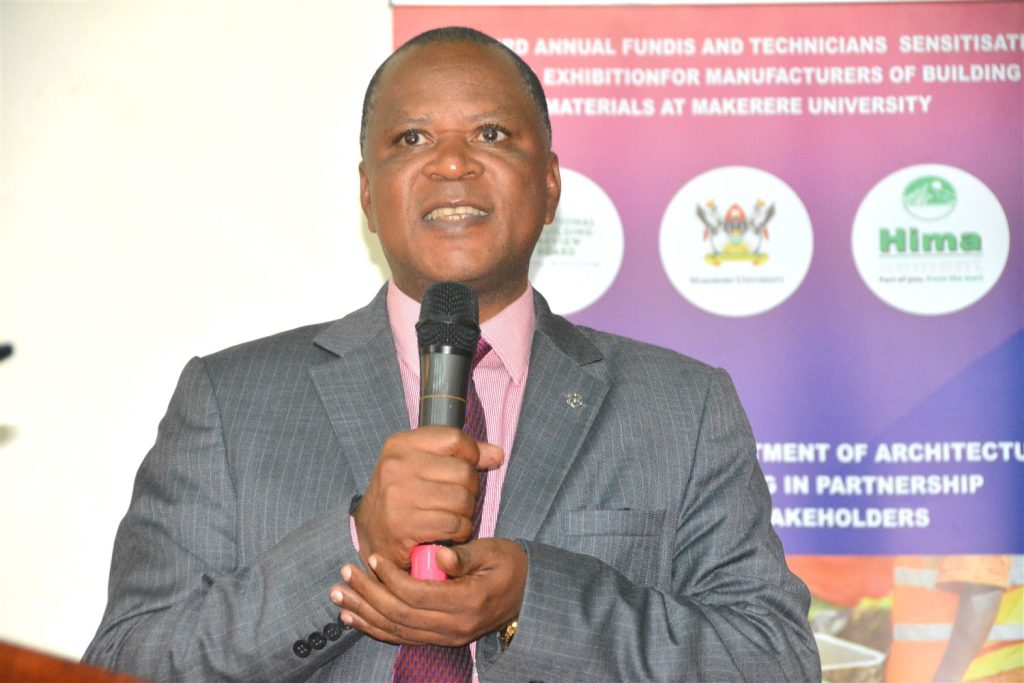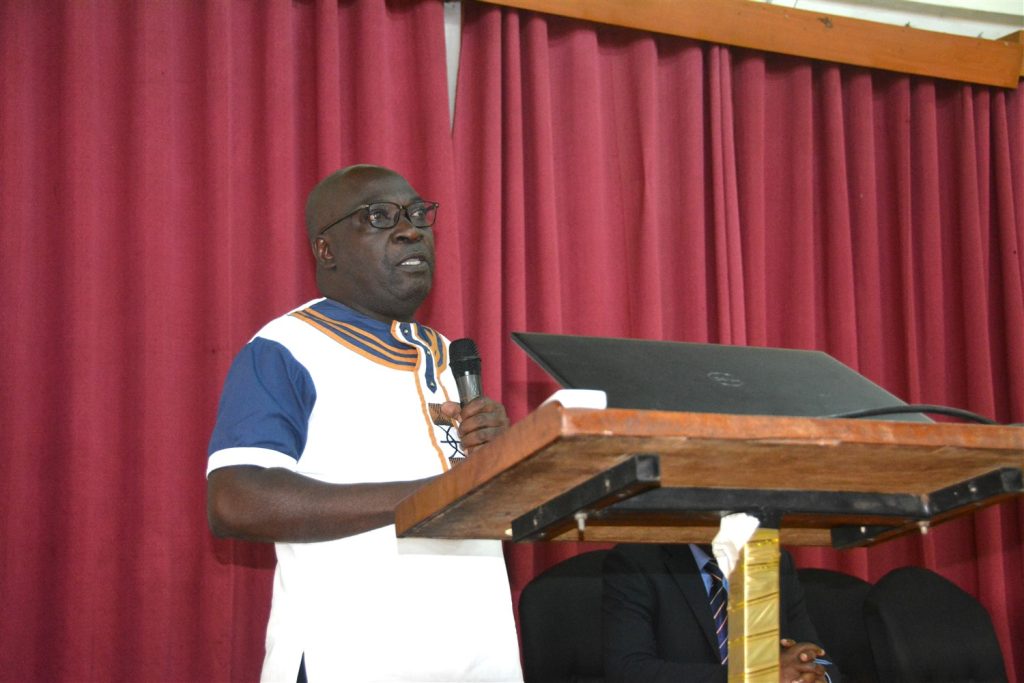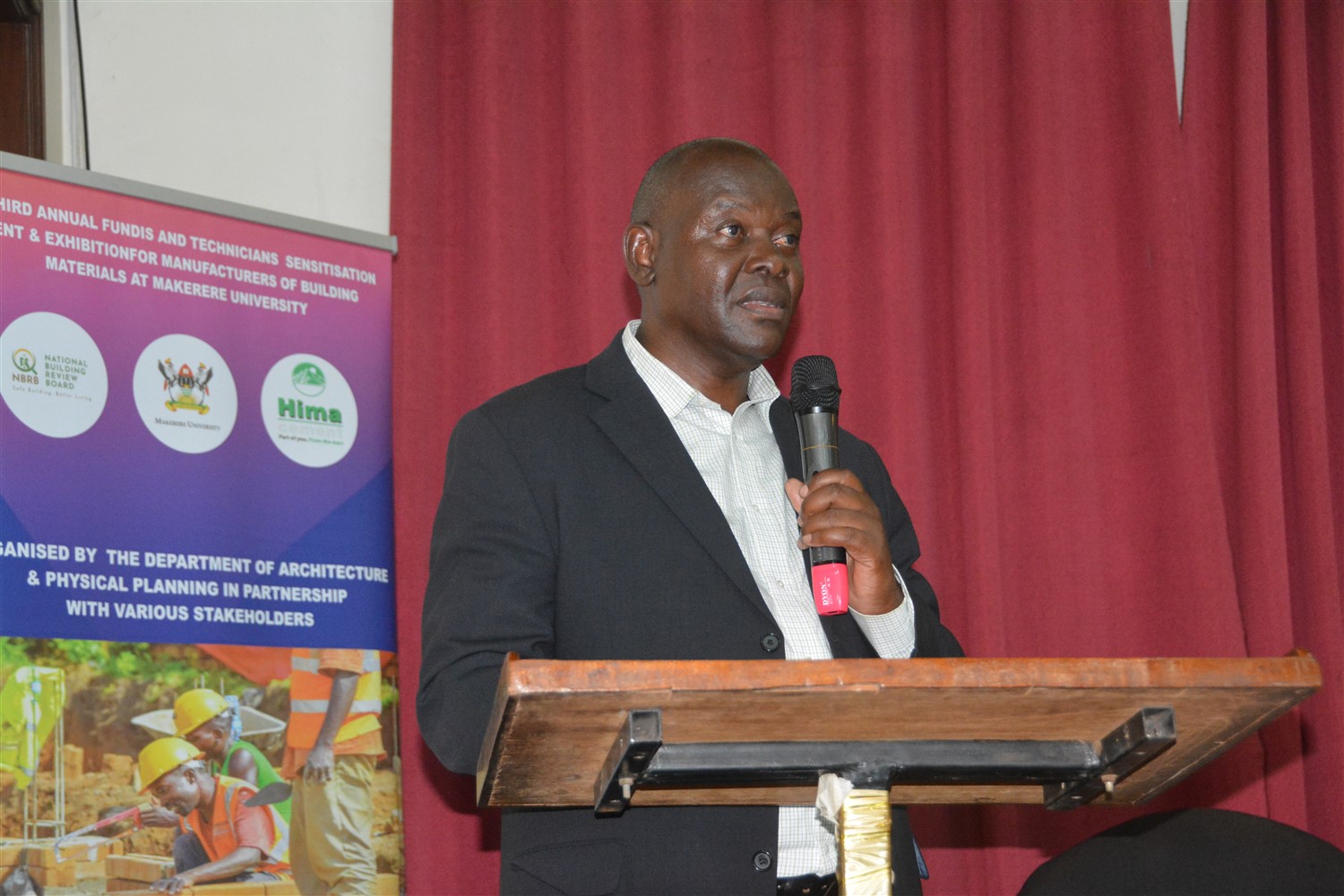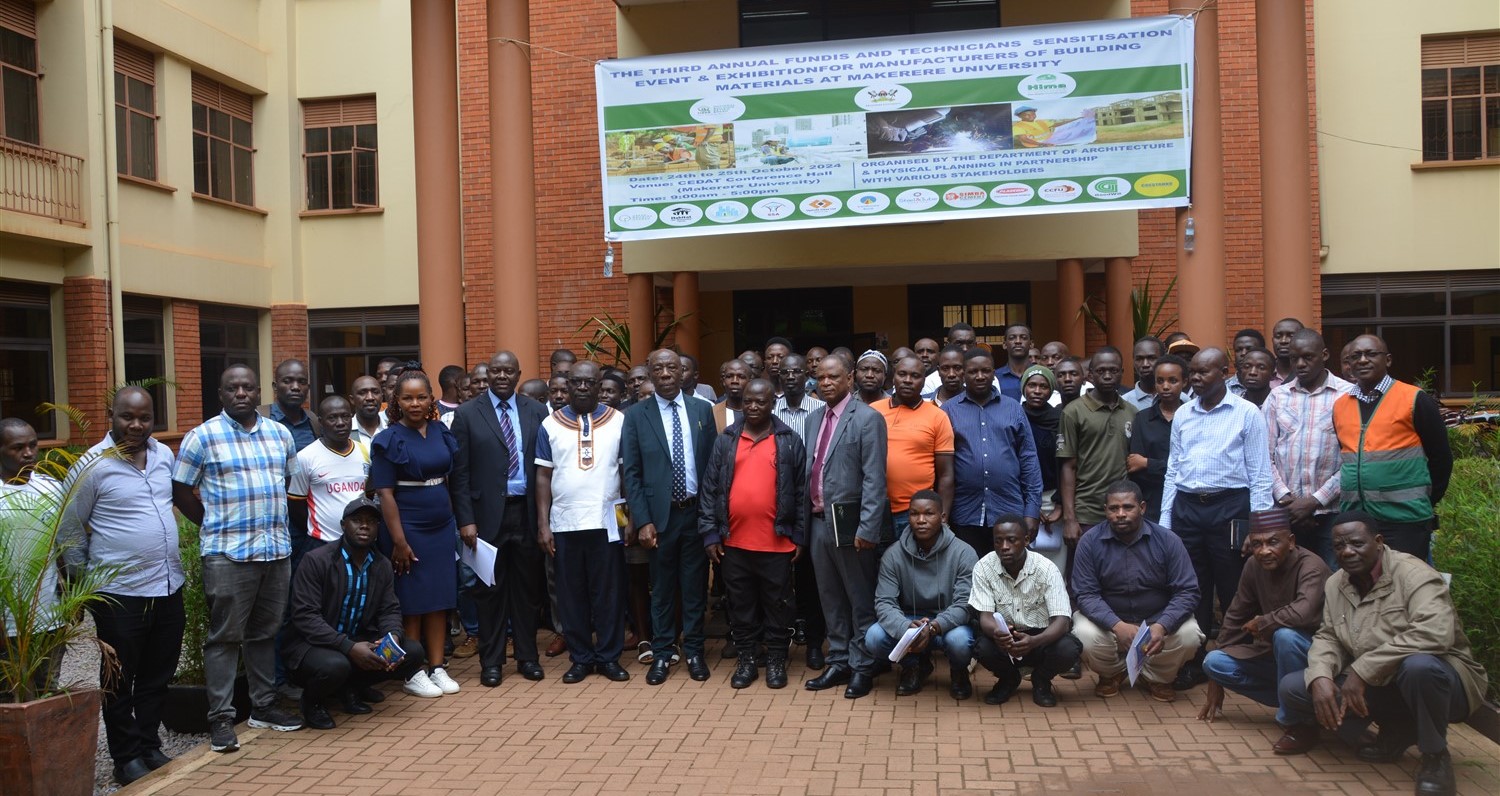The 3rd annual Fundis and Technicians sensitization event and exhibition by manufacturers of building materials organized by the Department Architecture and Physical Planning at the College of Engineering, Design, Art and Technology (CEDAT), Makerere University came to a close with a call for increased partnerships between training institutions and the community.
The event that attracted 200 participants including masons, fundis, painters, builders, metal and electrical fabricators ran from Thursday 24th to Friday 25th October 2024 at CEDAT. It was supported by several stakeholders and was characterized by training sessions and an exhibition of building materials by different companies that make cement, paint, water tanks tiles and many more.
Prof. Henry Alinaitwe, the Deputy Vice Chancellor in charge of Finance and Administration represented the Vice Chancellor, Prof. Barnabas Nawangwe at the opening of the training. In his remarks, he extended appreciation to the technicians for accepting to take part in the training which he said was key in ensuring that they gain from continuous learning. Prof. Alinaitwe observed that although some of them did not get through formal training, it was important that they took part in such training programs to keep abreast of the developments in the construction industry where they undertake the bulk of the work as masons, technicians, plumbers, and metal fabricators.

‘Keep improving, we need to up our game in terms of quality’, he said while making reference to the need for quality output. He cautioned them on issues of cost and cheating of their clients by making realistic costs. ‘We need to cost the work well taking into account the materials, the labor, the equipment used, and the overheads’. The other area that needed to be taken care of by the technicians included time management, which reflects on attitudes towards work, team work. While addressing the gathering in his capacity as Chairman of the Engineers Registration Board, Prof. Alinaitwe said the upcoming engineering Registration Bill, if approved, has a provision for the registration of all artisans and hence the need to have the minimum requirements for the stakeholders to be registered. He also stressed the need to bring on board as more women as possible. ‘We want to see more women, who can do some aspects in construction better than men like painting.

Prof. Moses Musinguzi, the Principal of the College of Engineering, Design, Art and Technology while welcoming the trainees to the college said the training is a good initiative that will help address challenge of skill and work match. He encouraged the trainees to do smart work, and take due consideration of ethics and customer care. He encouraged the department to extend the training opportunity to other units of the college and the university and also make it more formal, as part and parcel of the training program of the college in liaison with bodies like UBTEB.

Assoc. Prof. Kizito Maria Kasule, the Deputy Principal CEDAT while appreciating the initiative of the department said countries like Germany have apprenticeship training that help the training of students to gain skills equivalent to those acquired while in formal institutions of learning. He said the academia in Uganda is increasingly recognizing the importance of the informal sector in the growth of the country. ‘We need to learn from you. Almost 90% of the people in the construction industry have been informally trained’. He said by learning from each other, the two sectors jointly make a contribution towards the development of the country.
Dr. Amin Tamale Kiggundu, the head of the Department of Architecture and Physical Planning said the initiative, a community outreach program of the college started three years ago in the year 2022 with 60 Fundis and masons, in 2023, the number was increased to 120 Fundis and the current 2024, was 200 Fundis of various categories, including painters, builders, metal fabricators, plumbers and electrical fabricators. He said this community outreach program aims at sharing the accumulated scientific knowledge in building, design and construction technologies at CEDAT, sharing the expertise, knowledge and experiences with communities in greater Kampala and hence bridging the existing knowledge and skills gap between the training institutions and the communities.

The 21st century is characterized by collaboration, partnerships, and establishment of knowledge economies. He said based on the trainings held so far, it is clear that partnerships between the training institutions and the communities were possible especially the Fundis who are closer to the communities. ‘We also want to learn from the Fundi’s experiences, how they are able to connect to the communities in some cases better than those who have gone through the training institutions’, he said. He further noted that the majority of fundis are young people that need to be supported with skills and other ways of nurturing them. The dream of the department, he said is to introduce an open door policy that allows fundis and other university students to come to learn.

Several organizations supported the event and participated in the exhibition and they included Habitat for Humanity, Uganda, Green Building Council Uganda, The National Building Board, Uganda Clays Limited, Centenary Bank, Steel and Tube Industries Ltd, Simba Cement, Plascon, Goodwill, Cresttanks among others.
